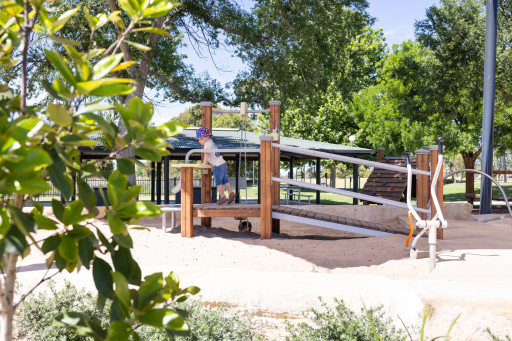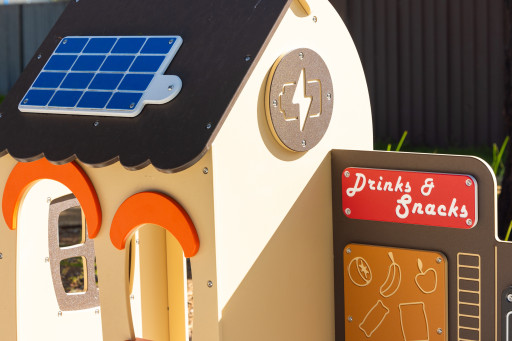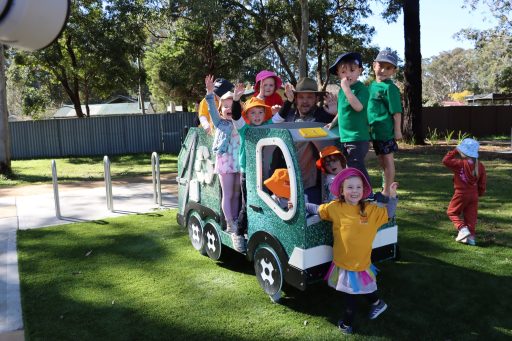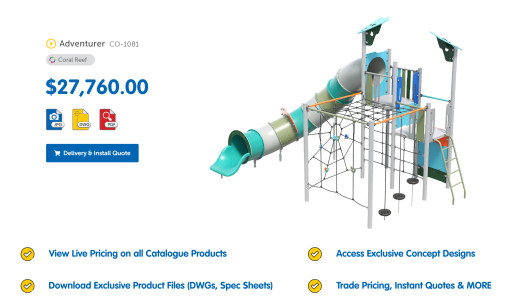9 types of play
Children learn to understand the world and how it works through different types of play.
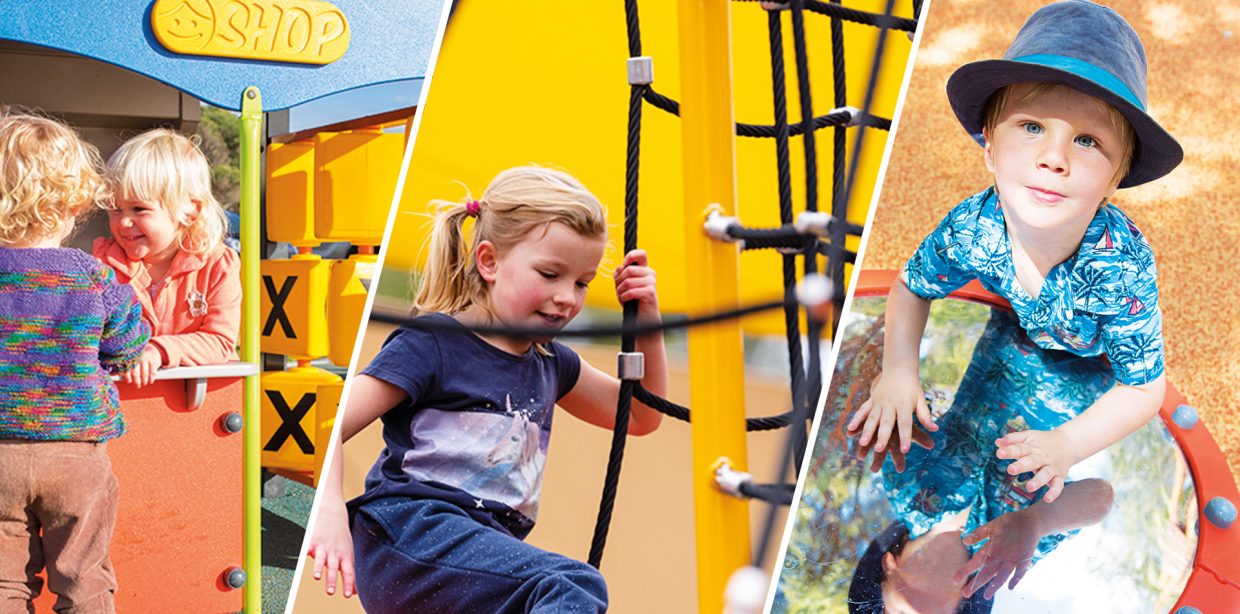
Share post
Play is a fundamental aspect of a child’s life, serving as a gateway to exploration, learning, and social development. While the concept of play may seem simple, it encompasses a diverse range of activities that offer unique benefits to children.
In this blog post, we will explore 9 Types of Play that children engage in, each with its own set of advantages for their physical, cognitive, and social growth. From solitary play, where kids embrace independence, to cooperative play, where teamwork and empathy take centre stage, we’ll delve into the rich tapestry of childhood play, understanding how parents can support and encourage these activities on the playground and beyond. Join us as we celebrate the many dimensions of play that contribute to the holistic development of our young ones.
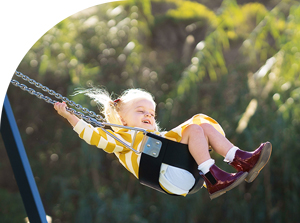
01. Solitary Play
Solitary play is when a child engages with playground equipment independently. At the average community park, you might see a child exploring a climbing structure, swinging alone, or digging in the sandbox, all while discovering the world around them. It’s a critical aspect of development, fostering independence, creativity, and self-reliance. Parents can support this type of play by providing children with the time and space to explore equipment on their own, encouraging them to take the lead in their play and make choices independently.
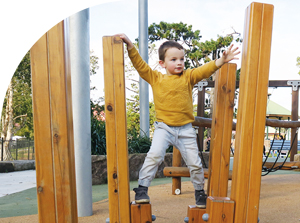
02. Risky Play
Risky play can manifest on the playground when children climb high structures, use fast-moving swings, or engage in activities that involve an element of danger. Parents play a crucial role in supervising risky play to ensure safety while allowing children to test their limits. It’s about striking a balance between encouraging exploration and adventure while minimising potential harm. By supervising and discussing risks with their children, parents help them develop a sense of responsibility, learning how to make safer choices in future risky situations.
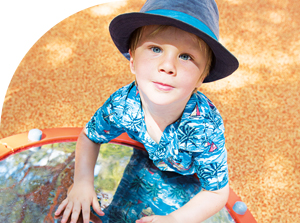
03. Sensory Play
Playgrounds often provide an array of sensory experiences, from sandboxes and water play areas to textured surfaces and materials. Sensory play involves using one’s senses, and playgrounds offer a perfect setting for this exploration. Parents can encourage sensory play by allowing children to engage with these elements freely. They can feel the texture of sand, the coolness of water, and the variety of surfaces underfoot. Sensory play enhances a child’s understanding of the world, stimulates brain development, and can be both calming and exciting, making it an essential aspect of early learning and development.
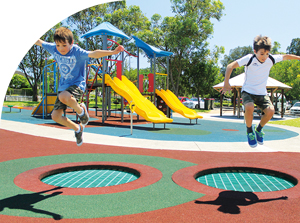
04. Parallel Play
Parallel play occurs when children engage in separate activities alongside one another without direct interaction. On a playground, you might see one child on the slide while another is swinging nearby. It’s a natural stage of social development, and parents can facilitate social interactions without imposing them. Encouraging conversation and suggesting collaborative activities without pressure can help children transition from parallel play to more interactive forms of play as they develop social skills.
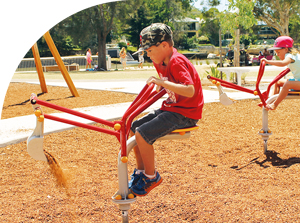
05. Construction Play
Many playgrounds incorporate building elements, such as blocks, sandcastle equipment, or play structures with imaginative themes. Constructive play involves creating, designing, and building, encouraging problem-solving and creativity. Parents can encourage this type of play by providing building tools, materials, and open-ended challenges that stimulate their child’s imagination. Constructive play not only supports cognitive development but also allows children to experiment, innovate, and develop their spatial awareness.
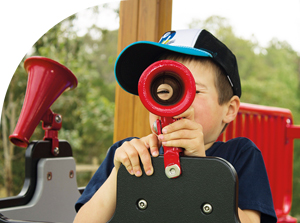
06. Pretend Play
Playgrounds often feature imaginative play equipment like playhouses, themed structures, or interactive elements that allow children to engage in pretend play. Parents can participate or facilitate pretend games to boost creativity and social interaction. Pretend play involves creating narratives and characters, fostering language development, and enhancing cognitive abilities. It’s an opportunity for children to step into different roles, explore their emotions, and practice communication and social skills as they interact with others in these imaginative scenarios.
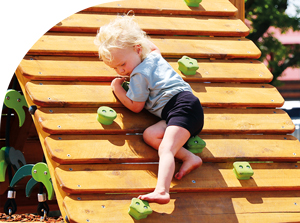
07. Active Play
Playgrounds are designed to promote active play, featuring swings, slides, climbing structures, and more. Parents can join in or encourage their children to engage in physical activities, fostering fitness, coordination, and muscle development. Active play is essential for a child’s physical well-being and helps them build strong bones, improve balance, and develop essential motor skills. It also allows children to burn off excess energy and provides an outlet for fun and excitement.

08. Rough-&-Tumble Play
Often involving playful fighting, physical interactions, or wrestling, and is a part of children’s natural social and physical development. Parents can supervise this play to ensure safety while allowing kids to experiment and learn physical and social boundaries. Rough &-tumble play helps children develop an understanding of physical limitations, cooperation, and social cues. It’s an important avenue for releasing energy, learning self-control, and building trust with peers. Parents can encourage this play by creating a safe environment and teaching children the difference between being playful and aggressive behaviour.
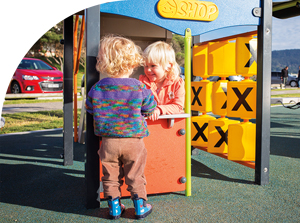
09. Cooperative Play
Cooperative play is all about children working together to achieve a shared goal, fostering teamwork and social skills. On a playground, this can involve group activities like playing tag, group climbing challenges, or collaborative games. Parents can organize or participate in activities that encourage cooperation, helping children learn the value of sharing, taking turns, and solving problems together. Cooperative play enhances social development, communication, and empathy, teaching children how to build positive relationships and work harmoniously with others, vital skills they will carry into adulthood.
Keep in touch
Get design inspiration, business tips and new product alerts straight to your inbox with our Moduplay Newsletter, the Playground Press once every two months.
